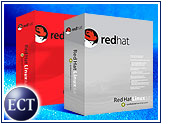
While scientists have been reaping the benefits of clustered computing for several years, using it to search for intelligent life in the universe and sift through vast amounts of data in hopes of making a breakthrough, business users have largely ignored this technology — until recently.
IBM product manager Barbara Butler told the E-Commerce Times that clustered IBM Unix-based servers powered the official Web site of the most recent Olympic Games, allowing huge numbers of users to access schedules and competition results.
Online brokerages also are using clustered servers to process stock trades and transactions at their heavily trafficked sites.
And a form of clustering called grid computing, in which users remotely share the processing requirements of specific tasks, is catching on in e-business.
“You’re going to be seeing more of this collaborative computing as the technology matures,” Butler said.
Cost-Effective Approach
Cost-effective open source programs have played a big role in the rise of clustered computing, also known as distributed or parallel computing.
According to Giga Information Group analyst Stacey Quandt, Linux-based Beowulf clusters typically are used to process high volumes of data related to bioinformatics, geosciences, automotive crash analysis and other research.
Because a setup like Beowulf takes advantage of off-the-shelf commercial software, Quandt said that it has cost advantages over proprietary systems. Some companies already are taking advantage of these capabilities in application-server configurations and in e-commerce settings where a distributed computing model can pave the way for improved security and remote management.
“In the context of e-business, there is potential for Linux clusters to be used for business intelligence and fraud analysis,” Quandt told the E-Commerce Times.
Quick and Connected
Indeed, Linux clusters are already linking various components of company infrastructures.
“A cluster of IBM Intel servers can be used to handle Web transactions, which can also be integrated with servers running warehouse management systems,” Quandt said. She added that they also can be used to avoid downtime and provide backup when a business experiences outages.
IBM’s Butler said data centers likely will find that they can process customer information more quickly and at higher volumes using a cluster approach. Clustering can also help firms deploy limited e-business resources more effectively, especially when workers are separated at various remote sites.
In addition, as wireless bandwidth increases, distributed computing could offer more opportunities for cost-effective e-business communications and transaction processing. Butler said a form of wireless clustering already is being used in some disaster recovery operations.
Napster Effect
The collaborative power of clustered computing perhaps has been demonstrated best by file-sharing service Napster, which was a technological success despite being a legal and financial debacle, according to Rajat Mukherjee, principal software architect at portal infrastructure provider Verity.
“With the Napster peer-to-peer model, you basically had a huge distributed computer,” Mukherjee told the E-Commerce Times.
Other companies now are emulating the peer-to-peer model, which could have a significant impact on the way various entities — whether individuals or entire companies — operate online.
High-Level Searching
Looking ahead, supercomputing’s ability to handle high volumes of simultaneous information requests could take Web-based searching to a whole new level.
Mukherjee said online users will gain access to much deeper pools of information as companies can more easily connect databases both internally and with other businesses.
“For example, if you go to a clothing site and you can’t find this one particular red shirt, you could use that same site to get access to a universe of other sites that might have what you’re looking for,” he noted.
Mukherjee, a former IBM lab researcher, said clustering could give users new ways to track down such items as obscure books or hard-to-find niche products. It also could help locate experts to tackle specific problems faced by businesses or consumers.
He added that the technology is particularly promising for enterprise data sharing on corporate intranets and for business-to-business communications between companies.











































Social Media
See all Social Media